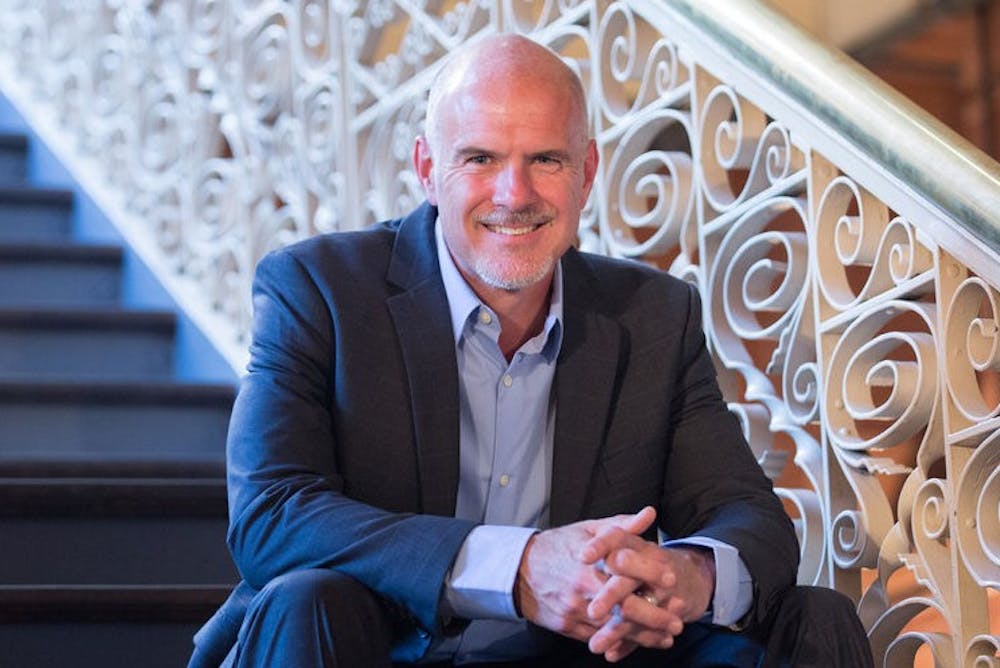Effective product marketing and the grooming behavior of the monkey species rhesus macaque are about to become a research project on which Penn students will be able to work.
Earlier this year, Penn named Michael Platt the 16th professor in the Penn Integrates Knowledge program. Platt, a James S. Riepe University Professor, is a neuroscience professor in the Perelman School of Medicine, a psychology professor in the College of Arts and Sciences and a marketing professor in the Wharton School.
Platt’s research investigates the neurological processes of human decision making. He’s conducted studies on the social effects of increased presence of oxytocin in monkeys, the heritability of prosocial behavior, and how the behavior of certain patterns of neurons influences human decision making. Some of his findings could change how pathology is viewed in humans.
“What we often think of as pathology might have a deep evolutionary heritage,” Platt said.
The implications of Platt’s research extend beyond the clinical realm. Platt thinks of his research as conducive to marketing new products, creating constructive and positive working environments and enabling people to make better choices. While he did say that “neuromarketing has been the low-hanging fruit in the interface between neuroscience and business,” he noted the expanding array of possibilities associated with the field.
“We can talk about other factors that make for more effective decision making or might help us to design better policy or more reasonable markets. I think that opportunity is pretty wide open,” Platt said.
“This could be really good for people to adopt better, more healthful behaviors.” Platt added.
Platt is particularly looking forward to working with the faculty of the Marketing Department.
“The marketing department here is really striking because the faculty study a wealth of different kinds of behaviors from charitable giving, competition and give and take,” Platt said. He hopes to better understand its research interests and its insights in order to pair them with his own projects.
While Platt is not scheduled to begin teaching until the fall 2016 semester, he is still interested in mentoring undergraduates and involving them in his research, as his laboratory is established.
Undergraduates need not be interested in a narrow field of research. “A lot of the most challenging questions that we have to address, especially those with a societal impact, lie outside traditional disciplinary boundaries,” Platt said.









